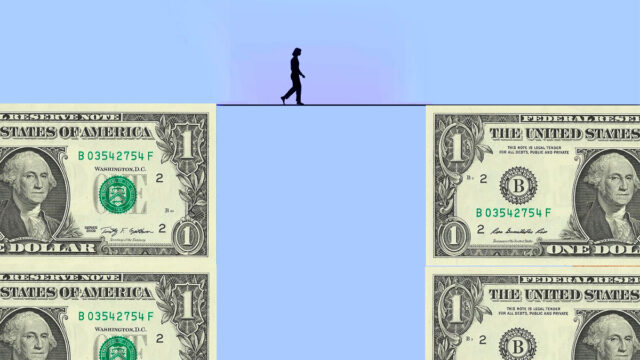How Creative Partners Can Find Their Professional ‘Happily Ever After’
ADWEEK will be all over Cannes. Subscribe to unlock unlimited access to all our coverage and analysis.
If you want to start an agency, now is the time. So many new creative, media, strategy and analytics shops are popping up everywhere. My co-founder and I could not be more proud to be part of the many who bring new business models and ways of working to fruition.
I just officiated my co-founder’s wedding. While the marriage bond is certainly a sacred one (and the wedding itself was magical), I couldn’t help but notice that our business relationship is, in some ways, a similar commitment.
Contractually, we have an Operators Agreement that could rival most prenups. We also share a bank account, iPhone locations, an executive coach and a whole lot of time. Our fates are interconnected, for richer or poorer, in sickness and in health; we just didn’t get the waterfront reception.
One of the earliest pieces of advice I got about starting a business was that while your partnership can be your greatest asset, it also will be your greatest risk. Nearly 70% of businesses fail because of partnership disagreements; 50% fail within the first 2-3 years. Much higher than the oft-cited divorce rates, yet this was news to me.
There’s a reason that partnerships are such a prevalent model in creative spaces: Strategy director and creative director or designer and copywriter. I find nothing more motivating than a partnership; it fuels me every day to deliver my best work.
So how do you make a business partnership (or creative partnership of any type) successful? Here are a few things we’ve discovered on our journey so far.
Monthly ‘hard stuff’ chats
You can’t protect against something you don’t acknowledge. Once we both realized the risks of partnership, it was easy to invest in safeguarding and strengthening it. Before we even launched our business, we wanted to make space and practice getting good at hard conversations. We started Monthly ‘Hard Stuff’ Chats with agenda topics including:
- What do I think you’re doing well? What do you think I’m doing well?
- Did we deliver against our job descriptions? Why or why not?
- Where do I feel you could be doing better? Where do you feel I could be doing better?
- What’s one thing I’m scared to tell you? What’s one thing you’re scared to tell me?
- Where could we use more support?
We even brought in an executive coach to help keep us accountable. Reflecting on these chats, we’ve gotten good at communicating honestly and openly. It’s a skill set I find myself using in other facets of my life too—with team members and with clients—and am particularly grateful for it.
Related Video
Understand each other’s genius zones
It’s important as an entrepreneur to know your genius zone and maximize the time you spend there. This is proving to be true but even more, it’s important to know and help make space for your partner’s genius zone. Where do they thrive that you don’t? And where do they thrive that you also thrive?
This understanding allows us to give space, celebrate our strengths, and more carefully distribute workload in the shared genius zones to ensure clarity on expectations and contributions.
It’s personal
This may be controversial, but I believe our societal emphasis on work-life balance is misguided; we often work from home, we have our best ideas at unexpected hours, and use so much of our personal life to derive human insights that inspire our work.
We should be striving towards integrating our work and life; pursuing things we’re passionate about with people we genuinely enjoy being around and learning from. It’s important to nurture the personal relationships around you, especially with your partner. Know their coffee order, Oura ring score and show up for them when they need it. Just like the rest of our lives, it’s our recognition of humanity that makes anything worth doing.
It’s an exciting time in advertising with many new agencies launching and partnership relationships along with them. If you’re thinking about co-founding an agency (which I highly recommend), it’s important to acknowledge that the partnership you’re entering has the potential to change both of your lives. The more intentional you can be about that, the more likely you are to find your professional ‘happily ever after.’

https://www.adweek.com/agencies/how-creative-partners-can-find-their-professional-happily-ever-after/
